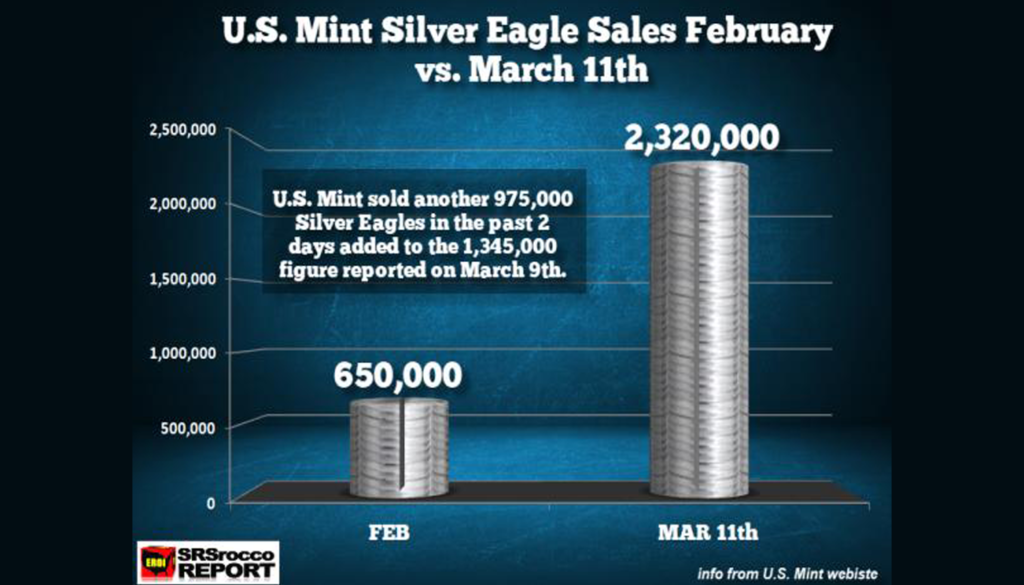Over the past month, gold and silver have remained in a trading range. Gold had difficulties breaking through $1,700, while silver lost momentum as it rose near $33. However, recent developments such as Greece deadlocks and US debt worries have once again returned gold and silver to their rightful safe-haven status.
Gold and silver never really lost their safe-haven status per se, but traders were not treating the metals as such. Gold and silver were caught in the tide with equities. The WSJ recently reported that since July 1, 90% of S&P 500 stocks have moved in the same direction on the same day on 26 days. For comparison, this only happened 38 days for all of 2010. This week is a different story. Gold futures for December delivery increased $48 on Monday, and another $16 on Tuesday. Silver futures have climbed nearly $2 in the same period. The move higher yesterday was very telling for both metals.
Despite the Dow falling more than 200 points, gold and silver both managed to climb higher on Tuesday. More importantly, gold and silver edged past their trading ranges of $1,700 and $33, respectively. The breakout can partly be attributed to the declining US dollar. Since reaching above 79.50 at the beginning of October, the DXY index has declined more than 4%. The European Union is doomed to fail because the divide between the northern and southern countries is just too great, former Fed Chairman Alan Greenspan told CNBC in a recent interview. If the US dollar was a true safe-haven, it would be rising against all currencies, sharply. Instead, the US dollar is setting new record lows against the Japanese yen.
Investing Insights: What’s Going On With Gold?
While many are focusing on the Eurozone debt crisis, concerns about the US continue to rise. Last Friday, Bank of America’s Merrill Lynch unit warned that the US is in for another credit downgrade by the end of the year if Congress fails to agree on a long-term plan to deal with the nation’s staggering debt load. “The credit rating agencies have strongly suggested that further rating cuts are likely if Congress does not come up with a credible long-run plan” to cut the deficit, Merrill’s North American economist, Ethan Harris, wrote in a report. ”Hence, we expect at least one credit downgrade in late November or early December when the super committee crashes.” On Friday, August 5, credit agency Standard and Poor’s issued the United States its first domestic credit downgrade in history. After the downgrade, gold surged 13% to $1,880 in about two weeks. Silver increased 10% to reach $43 in the same period. If you apply these same percentages from where gold and silver were trading at during the time of Merrill Lynch’s warning, we could see gold trading at $1,850 in a couple weeks, while silver would reach $34.50. Of course, the US has not received another credit downgrade yet, but if traders try to front run a possible downgrade, these appear to be quite reasonable price targets.
Although the US dollar continues to receive spurts of strength, mostly due to euro weakness, investors around the world are focusing on gold and silver as real safe-havens. Earlier this month, the world’s first offshore yuan-denominated spot gold contracted started trading. GoldCore explains that the move makes it “more convenient for Chinese people and high net worth individuals holding yuan to invest in the precious metal and opens a new way to hedge.” Furthermore, the move comes from a “push by Chinese authorities for a more international role for its currency and as an alternate reserve currency to the embattled dollar and euro,” GoldCore said. Meanwhile, the US is scrambling to find ways such as variable interest rates to make its debt look more appealing. The Treasury is considering issuing $20 billion blocks of three-year floating notes, but has not released any further details. Michael Pento, president of Pento Portfolio Strategies explains, “America is just a very short time away from facing reality, and reality is going to be interest rates that rise due to overwhelming supply and inflation,” he says. “People have forgotten about the debt debate in the US, but it’s coming back to the forefront very quickly.”
Eric McWhinnie-Wall Street Cheat Sheet October 26, 2011






